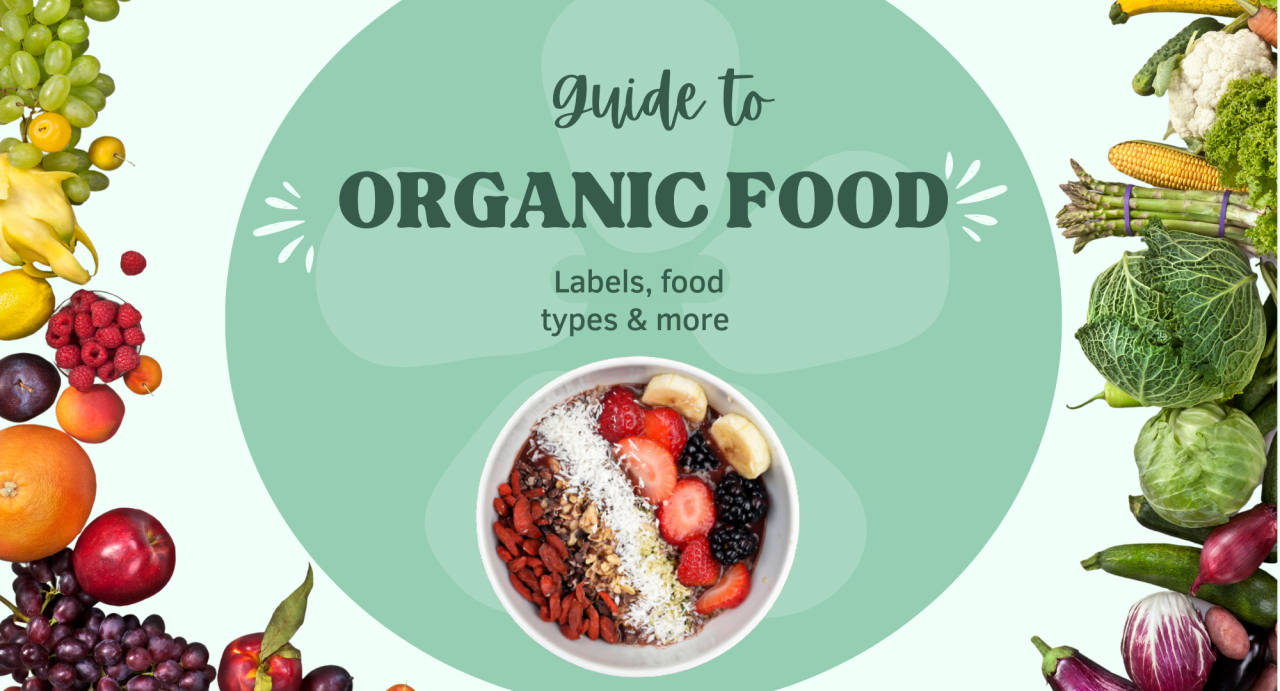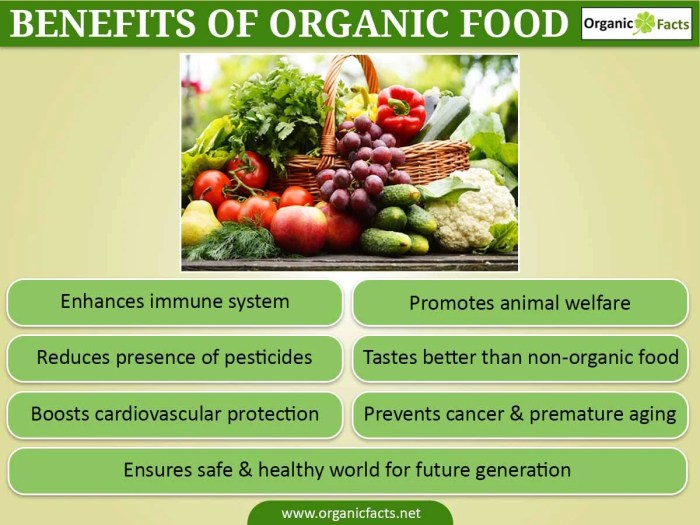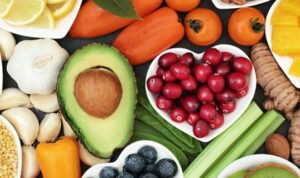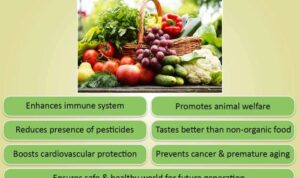Organic food benefits take the spotlight as we dive into a world of nutritious goodness, comparing organic produce to conventional options and exploring the environmental impact of organic farming. Get ready to learn why choosing organic is not just a trend, but a lifestyle!
Health Benefits of Organic Food

Eating organic food has numerous health benefits that can positively impact your overall well-being. Organic produce is grown without the use of synthetic pesticides, fertilizers, or GMOs, making it a healthier option for consumers. Let’s explore some of the key advantages of choosing organic foods over conventionally grown options.
Nutritional Value of Organic Produce
When it comes to nutritional value, organic produce often contains higher levels of vitamins, minerals, and antioxidants compared to conventionally grown produce. This is because organic farming practices focus on enhancing soil health, which leads to more nutrient-dense fruits and vegetables for consumption.
Reduction in Exposure to Pesticides and Chemicals
One of the biggest advantages of choosing organic food is the potential reduction in exposure to harmful pesticides and chemicals. Conventional farming relies heavily on synthetic pesticides to control pests and diseases, which can leave residues on produce and have negative effects on human health. By opting for organic foods, you can minimize your intake of these potentially harmful substances and support a cleaner food system.
Environmental Impact of Organic Farming
Organic farming practices play a crucial role in promoting environmental sustainability by reducing the use of harmful chemicals and pesticides that can contaminate soil and water sources.
Crop Rotation and Natural Fertilizers
Crop rotation is a key component of organic farming, where different crops are planted in a specific sequence to help maintain soil fertility and reduce the risk of pests and diseases. Natural fertilizers, such as compost and manure, are used to nourish the soil and promote healthy plant growth without the need for synthetic chemicals.
Water and Soil Conservation
Organic farming helps conserve water by promoting practices like mulching, drip irrigation, and cover cropping, which reduce water waste and improve soil moisture retention. Additionally, organic farming methods help enhance soil quality by promoting biodiversity, reducing erosion, and minimizing the use of synthetic fertilizers that can degrade soil health over time.
Organic Food Certification: Organic Food Benefits
Organic food certification is a process that ensures the food has been produced following strict guidelines set by certifying bodies. These guidelines typically include restrictions on the use of synthetic pesticides, fertilizers, antibiotics, and genetically modified organisms.
Main Certifying Bodies
- The United States Department of Agriculture (USDA) Organic
- European Union Organic Certification
- Japan Agricultural Standard (JAS)
Significance of Organic Certification Labels
Organic certification labels are important for consumers as they provide assurance that the food they are purchasing has been produced in a way that is environmentally friendly and free from harmful chemicals. These labels help consumers make informed decisions about the food they buy, supporting their health and well-being.
Cost and Accessibility of Organic Food

When it comes to organic food, one major concern for consumers is the cost and accessibility compared to conventional options. Let’s take a closer look at the factors influencing the price of organic products and strategies to make them more accessible to a wider range of individuals.
Factors Influencing Cost of Organic Food
Organic food tends to be more expensive than conventional options due to various factors such as:
- Higher production costs: Organic farming practices often require more labor and resources, increasing production expenses.
- Certification fees: Obtaining organic certification can be costly for farmers, leading to higher prices for consumers.
- Limited economies of scale: Organic farms are typically smaller in size, resulting in less efficiency and higher per-unit costs.
Strategies for Making Organic Food More Accessible
Despite the higher costs, there are ways to make organic food more accessible to a wider range of consumers:
- Shop seasonally: Opt for organic produce that is in season, as it is usually more affordable.
- Buy in bulk: Purchasing organic items in bulk can help save money in the long run.
- Grow your own: Consider growing your own organic fruits and vegetables at home to reduce costs.
Tips for Prioritizing Organic Purchases on a Budget, Organic food benefits
When working with a limited budget, you can prioritize organic purchases by:
- Focusing on the “Dirty Dozen”: Prioritize buying organic for produce items on the Environmental Working Group’s “Dirty Dozen” list, which are known to have higher pesticide residues.
- Comparing prices: Look for sales, discounts, and promotions on organic products to save money.
- Meal planning: Plan your meals in advance to avoid food waste and make the most out of your organic purchases.


